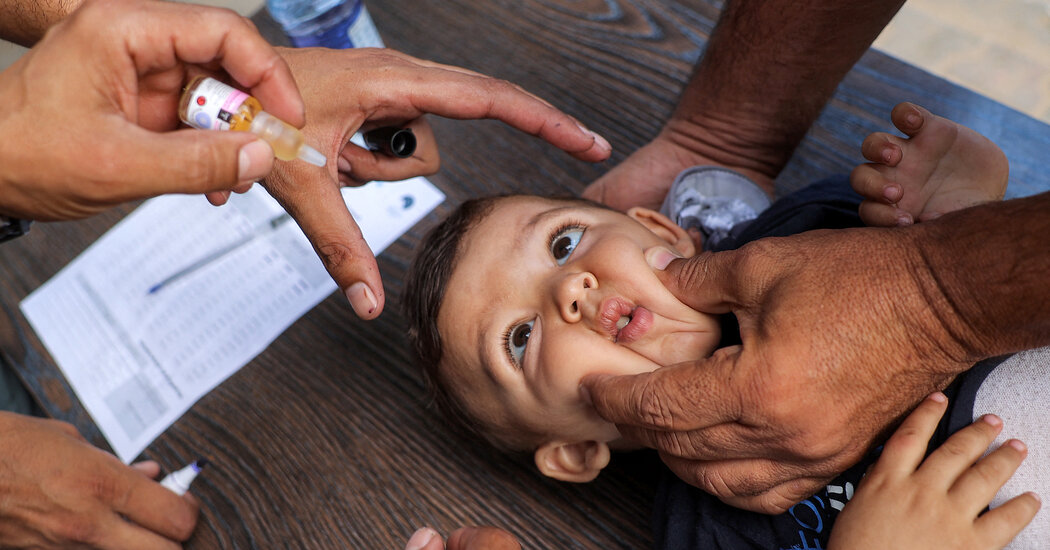The poliovirus that paralyzed a child in Gaza, the first case in the region in 25 years, has traveled a long path.
It most likely arose in Nigeria and made its way to Chad, where it was first detected in 2019, according to genetic analysis. It emerged in Sudan in 2020 and then found a foothold in Egypt, in unvaccinated pockets of Luxor and North Sinai — next door to Gaza.
This journey was the consequence of a fateful decision by global health organizations to pare down the oral polio vaccine in 2016. The move, now called “the switch,” was intended to help eradicate the disease.
Instead, the change has led to outbreaks of polio in dozens of countries and has paralyzed more than 3,300 children.



TLDR: the polio vaccine used to contain weakened versions of the three strains of poliovirus. When weakened live virus vaccines are used, the people inoculated with them shed copies of those viruses, which is usually no big deal… except that one of those weakened polio strains would, very rarely, mutate back into its full-strength form and sicken unvaccinated people living around those who were being vaccinated.
Eight years ago, the decision was made to remove the problematic strain of polio from the vaccine, because it was thought low wild infection rates meant that the risk of vaccination-derived infection had become higher than catching it from the environment. Regrettably, it seems that decision was made in error – type 2 polio outbreaks have soared since then.
So, the answer is still to get vaccinated? If you are vaccinated against polio, can you contract it?